Kering Looks to the Future in a Cold Climate for Luxury
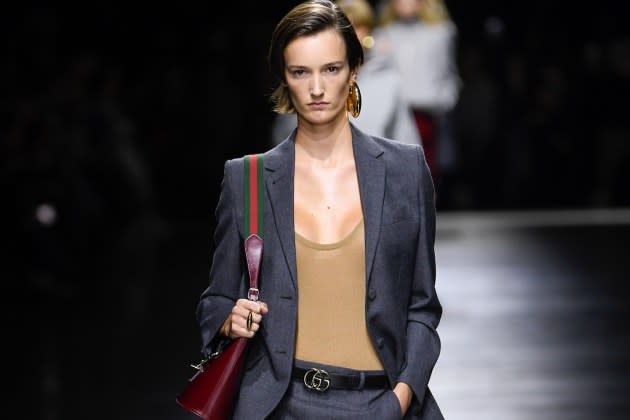
LONDON — It was a difficult quarter, with double-digit revenue declines across all its major brands, an in key regions such as Europe and North America, but Kering is undaunted, and planning for better days ahead.
In the third quarter, Kering saw group revenue fall 13 percent at reported exchange rates and 9 percent on an underlying basis to 4.46 billion euros. The numbers were broadly in line with analysts’ expectations, and came amid a wider luxury slowdown and geopolitical upset.
More from WWD
Paris Hits New Attention Record, Brands Post Less but Better, Launchmetrics Says
Circ Scales Up With Mara Hoffman, Kering's China Start-up Awards: Short Takes
Alessandra Facchinetti Teases Launch of Her Own Fashion Brand
Sales at Gucci, Kering’s largest brand, which generates more than 50 percent of group revenue, fell 14 percent on a reported basis and 7 percent underlying to 2.22 billion euros.
At Yves Saint Laurent, a brand that’s roughly one-third of Gucci’s size, sales were down 16 percent on a reported basis, and 12 percent underlying. At Bottega Veneta, they fell 13 percent at current exchange, and 7 percent underlying.
Kering’s “other houses” division, home to brands including Balenciaga and Alexander McQueen, saw sales fall 19 percent on a reported basis and 15 percent underlying.
Kering said Alexander McQueen experienced a “slowdown” in the quarter, while Balenciaga’s growth was “mixed” across the regions. The company does not break out revenue figures for those brands.
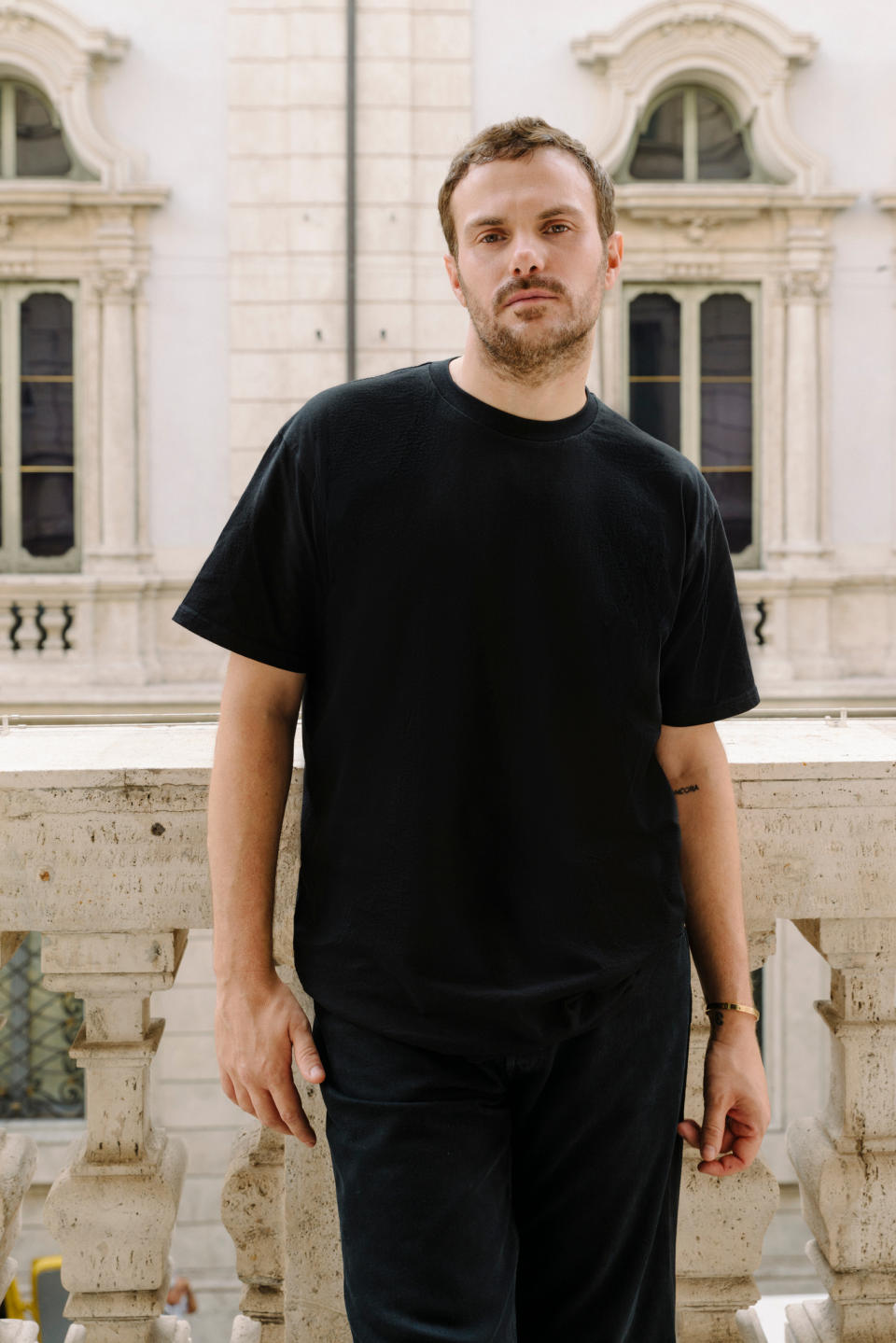
Kering said the negative revenue trends were magnified by lower wholesale activity at both houses, part of a wider strategy to downsize the channel.
Kering’s declines compared with a 9 percent like-for-like uptick in the fashion and leather goods division at rival LVMH Moët Hennessy Louis Vuitton, which posted sales of 9.75 billion euros in the third quarter.
Earlier in the day, another competitor, Hermès, saw sales rise 16 percent at constant exchange in the third quarter even as the market loses its appetite for luxury.
Some of the pain was self-inflicted, according to François-Henri Pinault, Kering’s chairman and chief executive officer. He said the “change” in third-quarter revenue performance partly reflected the “impact of our decisions to further elevate our brands and their distribution.”
Like so many other luxury names, Kering has been shifting away from the wholesale channel and putting a greater emphasis on its own retail distribution, a grueling process that often results in short-term losses.
In addition, Kering has also made seismic changes on the management, creative, M&A, and beauty fronts as it attempts to upgrade its strategies and brand appeal. Pinault said the recent changes will enable Kering to reclaim its “position and influence,” in the market and achieve growth despite macro-economic headwinds.
Wholesale, which represents around 22 percent of business, was down 20 percent in the third quarter, while retail fell 6 percent. The biggest declines were in North America, which was down 21 percent, and Europe, which fell 10 percent in the three months.
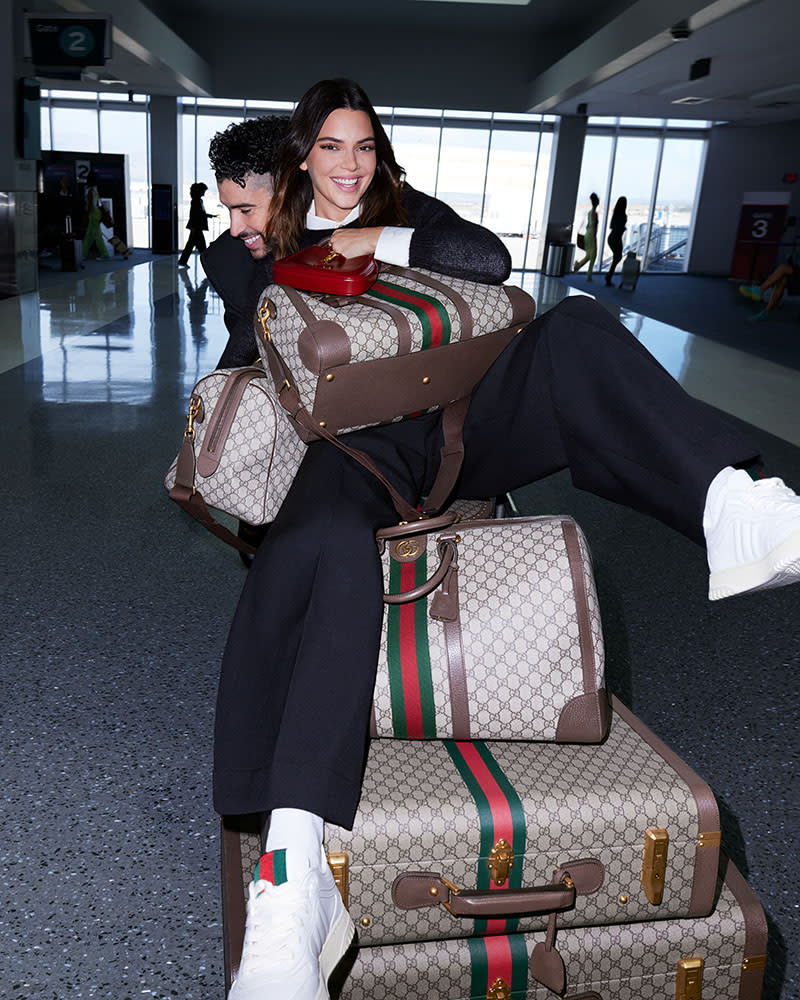
By contrast, sales in Japan were up 28 percent, thanks partly to the traveling Chinese consumer and to favorable exchange rates. Revenue in the Asia-Pacific region rose 1 percent, also thanks to the Chinese who are hungry to spend while on holiday.
On Tuesday’s analyst call, Jean-Marc Duplaix, Kering’s deputy CEO in charge of operations and finance, talked about the current cold climate for luxury.
He said that geopolitical risks were mounting, and that could deter already nervous consumers. With regard to China, Duplaix said 25 percent of demand is from tourists shopping in places like Korea and Europe.
In mainland China, the mood isn’t as buoyant. “Consumer sentiment is not where we were expecting it to be at the beginning of 2023,” Duplaix said.
Sales trends are flat in North America, with persistent weak traffic and “no inflection point” in sight, said Claire Roblet, Kering’s financial communications director.
Much of the call was about the path ahead, especially for Gucci, which over the past year has seen the arrival of Sabato De Sarno as creative director, and of Jean-François Palus as interim president and CEO of the brand.
Duplaix described Palus as an “operational manager” whose job is to fix short-term issues, make the company more cost-efficient, and set “a new foundation for Gucci.”
The brand is planning to ramp up its marketing, with more special and seasonal campaigns, such as the one starring rumored loved-up couple Kendall Jenner and Bad Bunny, and international brand exhibitions such as Gucci Cosmos, which will travel to Japan in 2024.
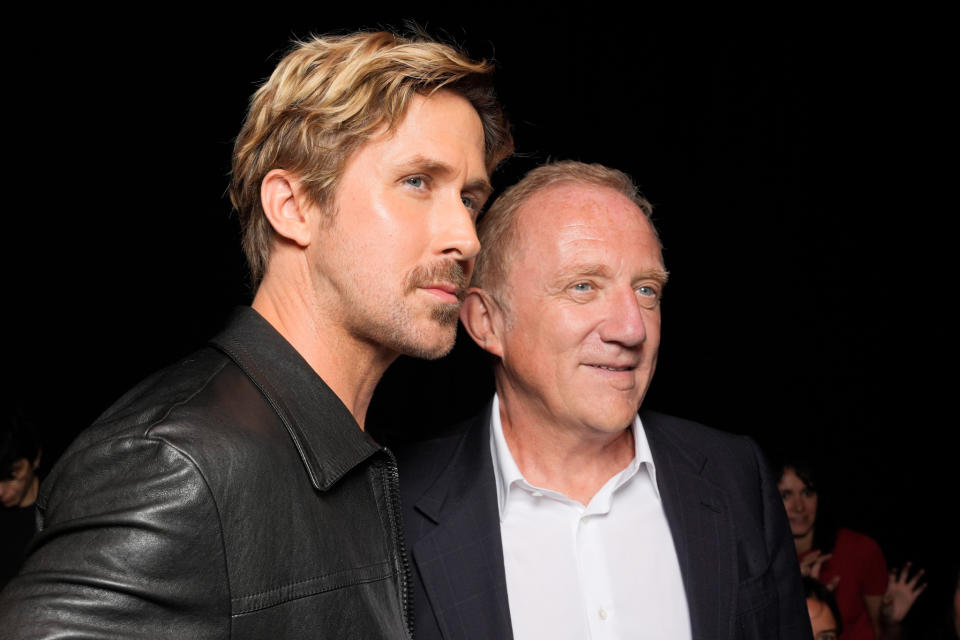
In response to a question, Duplaix added that Kering was in no hurry to replace Palus. “The search for a new CEO is not a priority. Execution is the priority, and we’ll take the time we need to find his successor,” he said.
There will, however, be a string of new hires, with Palus looking to beef up Gucci management “and add new skills and competencies” to the team, according to Duplaix.
He added that Gucci showed “good resilience” in handbags and travel categories in the three months, with management aiming to improve the “exclusivity and quality” of Gucci merchandise.
The focus will continue to be on the classics, as 70 percent of the seasonal merchandise is evergreen product purchased by a loyal clientele, Duplaix added.
Looking ahead, Kering also plans to keep cool on the M&A front after a rush of acquisitions in the first nine months.
Over the summer Kering snatched up Creed for a reported $3.8 billion and followed up the deal a few weeks later, agreeing to buy 30 percent of Valentino for 1.7 billion euros. It has an option to take full control of the Italian brand by 2028.
As reported, Kering has been under pressure from activist investors to make a transformational acquisition that would put it on a more equal footing with rival LVMH and make it less reliant on Gucci, which accounted for 67 percent of the group’s operating profit in 2022.
Duplaix suggested that Kering would take a break from buying, and focus instead on “portfolio, strategy and integrating the new brands. We have a very full portfolio right now, and there is so much opportunity with these iconic brands,” he said.

Duplaix argued that Creed would help to supercharge Kering Beauté. Duplaix described the new division as a beauty “start-up” with a small top line — and a lot of costs.
“Creed will help it to accelerate, and will absorb some of those costs. It is a 300 million euros business and highly profitable,” he said, urging analysts to exercise patience. “This division will be loss-making until we reach a critical scale.”
Kering also has big plans for Balenciaga nearly a year after an advertising scandal rocked the brand and dented sales in the U.S., the U.K. and continental Europe.
Last November, two Balenciaga campaigns triggered outrage that engulfed the French fashion house, photographers, creatives and even longtime collaborator Kim Kardashian.
One featured children posing alongside a variety of items, including logo beer glasses and handbags shaped like teddy bears dressed in bondage gear.
A separate fashion campaign, depicting actresses Nicole Kidman and Isabelle Huppert in business attire, included a closeup of a handbag resting on a page from the 2008 Supreme Court ruling “United States v. Williams,” which confirmed the promotion of child pornography as illegal and not protected by freedom of speech.
The group and brand have since apologized, and have kept a low profile over the past year. But that’s all about to change.
“The brand is coming back in 2024,” Duplaix said, adding that Balenciaga sales have been “booming” in Asia, which was less impacted by the controversy.
“Brand appreciation is currently very high, very strong and we’ll resume our communication initiatives next year. We haven’t been pushing so much on the open-to-buy this year, but we are planning for a rebound depending on market conditions,” he said.
In the hard luxury division, Kering said Boucheron’s positive performance reflected the success of its high jewelry and mainline collections. Pomellato achieved solid growth in its stores, while Qeelin showed “excellent” momentum.
Duplaix said jewelry performed well in the period due to investment and because “the brands are less exposed to the U.S. market.”
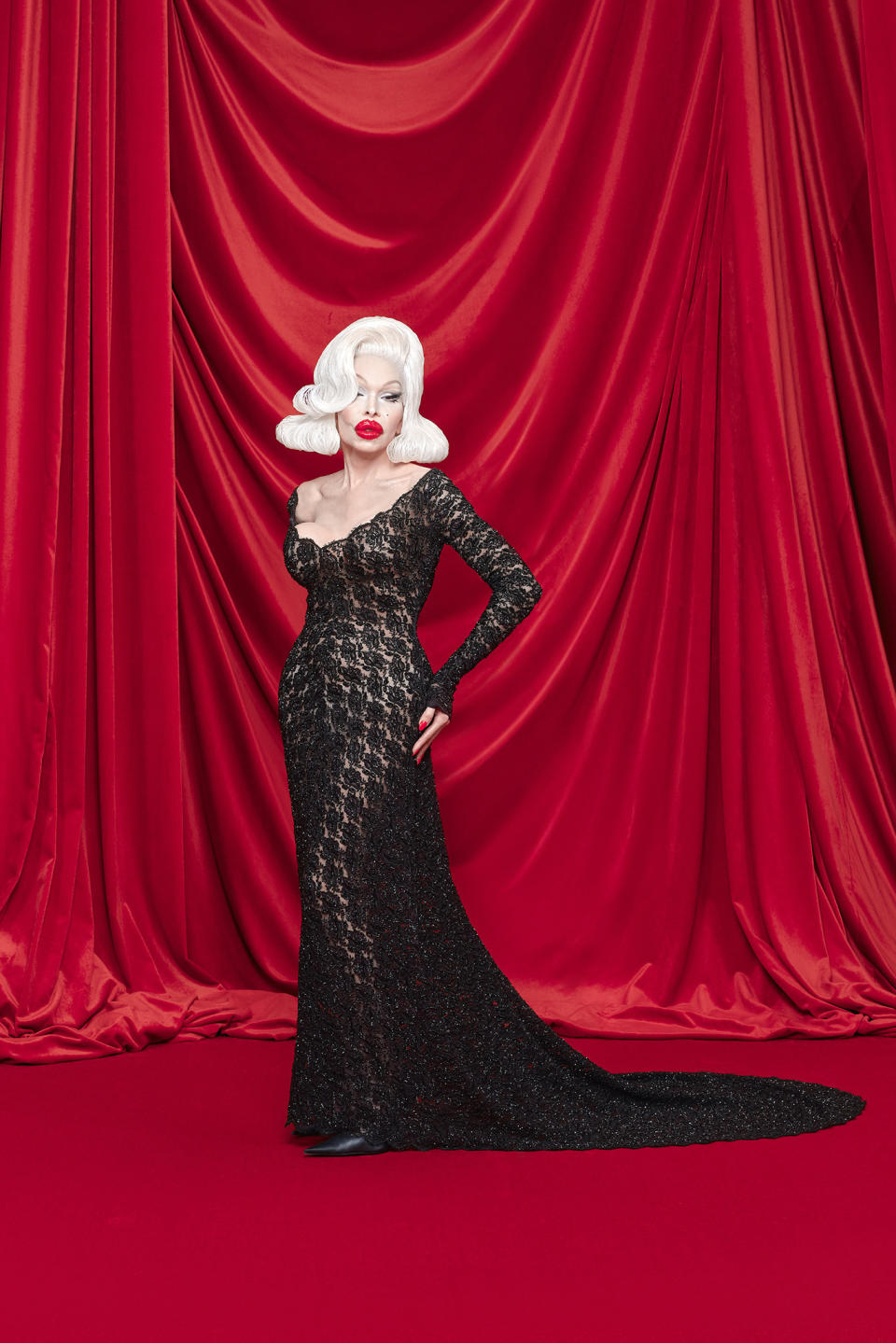
Revenue at Kering Eyewear totaled 331 million euros, up 34 percent on a reported basis due to the contribution of sunglasses brand Maui Jim. The division rose 2 percent on a comparable basis. Growth was driven mainly by sales of optical frames following “very strong” sales of sunglasses in the first half of the year, Kering said.
Over the past few weeks, analysts had already dialed down their expectations for Kering’s third quarter, while some downgraded their price targets for the brand.
As reported, Bernstein’s Luca Solca downgraded Kering shares to a “market perform” rating from “outperform,” based on De Sarno’s Gucci debut in Milan; the recent M&A activity; and the flurry of management and creative changes at the French group.
Solca reduced Kering’s share price target to 492 euros from 582 euros, declaring there was “no big bang” in Milan. In short, Bernstein’s team didn’t see enough on Gucci’s spring 2024 catwalk to signal a “fast and material Gucci reacceleration.”
Barclays also slashed its price target for Kering’s shares to 510 euros from 542 euros. Like Bernstein, the bank is skeptical about the group’s ability to make meaningful changes at the brands.
“We remain cautious on Kering’s turnaround story as it remains to be seen whether key brand Gucci will be able to successfully relaunch momentum through its new aesthetic,” wrote Carole Madjo, who also nodded to challenges with Saint Laurent and Bottega Veneta.
She argued that Balenciaga “has not yet recovered from the negative impact its controversial marketing campaign had in the U.S.”
Madjo added the bank is waiting “to gain more visibility on the various brands’ outlooks amid a worrying macro environment.”
By contrast, TD Cowen is upbeat about Kering’s future.
“We think the long-term remains bright, but both economic and geopolitical bumps will drive volatility in the next few quarters,” the bank said last week. “We remain excited about the innovation and product changes ahead at Gucci and Kering’s overall agility.”
Kering released its results after the market close in Paris. Shares closed up 1 percent at 407.45 euros.
Best of WWD

